Personal Capital alternatives? This post is for you.
Nowadays, there are various financial tools and software that you can utilize.
Most of them are free and are tailor-fit to your specific concern.
For example, if you want to keep track of your budget, save more money, or earn cashback- there are plenty of apps that exist for that purpose.
One noteworthy of these personal finance apps is Personal Capital.
If you have been looking around the web for tools or apps to help you work out your finances, surely, you’ve been introduced to one of the best- Personal Capital.
However, what if you tested it and found that it’s not for you?
Today’s post will introduce you to Personal Capital and various Personal Capital alternatives to explore.
Come on, and let’s get started!
Related reads: M1 Finance vs. Robinhood- Which is the best investing platform for you?
What is Personal Capital?
Personal Capital is a personal finance software and wealth investment tool in one.
Within the Personal Capital, you get to learn money management and financial planning. Plus firsthand insights from financial advisors and experts.
Therefore, whatever your financial goals are, Personal Capital has a lot to offer.
You can keep track of your savings, monitor your net worth, save for retirement, and also ensure you’re not over and under spending- Personal Capital does all of it for you.
One of the highlights of this financial software is its customized dashboard. With it, you can see the complete financial picture of your money and assets at a glance.
Personal Capital is legit software and is popular within the market for a reason. Hence, it is widely recommended for beginners and even for experts in the industry.
With over 30,000 investment clients and 3-million users, Personal Capital is one of the best out there.
Pros and Cons
| PROS | CONS |
| Personalized dashboard for easy viewing and monitoring of different financial aspects. | It might be a bit overwhelming if not familiar with the software. |
| Clean, professional, and easy-to-use interface. | Not suited for beginners investors. |
| Seamlessly connect various accounts | Free to use. |
| Strong points are on the investment side. | The high management fee for investors. |
Who is Personal Capital for?
In a nutshell, Personal Capital is more than just a budgeting and cash management tool.
Its strong points are on the investment side. Therefore, Personal Capital is best for DIY investors or those who prefer a Robo-advisor because it combines a personal human touch from a pool of financial experts’ guidance.
Although it can also cater to basic financial activities such as savings and monitoring, Personal Capital is well-rounded, especially on investment.
However, keep in mind those management fees because you should also consider them an expense to your investing journey.
Personal Capital Alternatives– 12 Apps you should check out.
For Personal Capital alternatives, we categorized each according to use: Apps or software for budgeting, investing, monitoring, and savings.
These apps cater to specific purposes above. It is because, even though Personal Capital can offer it as a whole, sometimes it might not be the right platform for you.
Hence, depending on what goals you are trying to accomplish, there are Personal Capital alternatives that may be a good contender and suit your needs.
For Budgeting
1. You Need A Budget (YNAB)

Gain Total Control of Your Money.
From the word itself, you probably already have an idea in mind. You Need A Budget or YNAB is a money app that specializes in budgeting.
Furthermore, if you want to regain control of your financial life and simplify how budgeting works, YNAB is the perfect financial partner for you.
Although budgeting is the core strength of YNAB, the app can also help you eliminate debt and reduce financial stress.
In addition, you can share information with your accountability partner or your significant other, review and monitor progress towards goals, and generate insights from comprehensive reports.
YNAB is available on every platform, from Apple and Android and even on the web.
For YNAB, budgeting is not a restriction or a way to spend less. Instead, it is a way to spend right.
If you want to test the water, you can try their free trial for 34 days– just to take a peek at how the app works and see if it fits your needs (cancel anytime, no commitment.)
PROS:
- Features zero-based budgeting, meaning giving every dollar a job
- Has joint budgeting features for couples and goal tracking
- Available on most platforms (mobile and desktop)
- Has free trial
- Syncs with multiple devices
CONS:
- Pricing after free trial: $11.99/month and $84/year for an annual plan
- No bill tracking or payment feature
2. Mint by Intuit

Experience a fresh way to manage money.
One Personal Capital alternatives are the service platform, Mint by Intuit.
Resembling YNAB, Mint also offers comprehensive budget tracking and monitoring. It also conveniently connects each account into one app. So whenever you log in, you can see your data in real-time on any devices you choose to login to.
Moreover, it’s free to use! You can download the Mint app from Playstore or Apple store and get up and running in a matter of seconds.
One highlight of Mint is its free credit score tracking feature. It is handy for those who want to improve their budgeting and spending plus ultimately improve their credit score.
Essentially, Mint is strong in the budget and expense tracking forte.
With over 15 million users, its users love it because Mint is still free to use despite apps offering many options that come with a price.
Aside from that, it also has a bill and payment tracker capability. Mint will remind you when payables are due. Plus, an investment tracker, which is a nice-to-have feature although it is not in-depth.
PROS:
- Free to use
- Has a free credit score tracker
- Analyzes your spending pattern
- Budget tracker, expense tracker, and savings tracker
- Compatible with most devices
CONS:
- The investment tracker side is not in-depth. So for this, better stick with Personal Capital if you like to get investment analysis.
- Collects data to offer reports and analysis
3. Everydollar
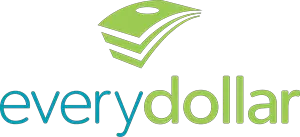
Budget confidently with Everydollar
Created by the famous financial guru Dave Ramsey, EveryDollar is a web-based and mobile app budgeting software excellent for back-to-basics budgeters.
The concept of EveryDollar is similar to YNAB- giving every dollar a job or the “zero-sum budgeting method.” However, depending on the person and his unique life situation, this type of budgeting approach may work or not.
EveryDollar is straightforward to use, easy to understand, and user-friendly. Plus, it is backed up by Dave Ramsey’s Baby Steps for getting out of debt and financial tips and tricks.
There is a free version if you would like to try Everydollar.
PROS:
- Platform accessibility- web, iOS, Android
- Core is budgeting
- Syncs with every accounts and device
- Additional Help- connects with your local experts if you want advice or insights for every critical financial decision.
- Ad-free
CONS:
- Limited free version
- The paid version is $99 annually
4. Money Lover

The simplest way to manage personal finances.
Last in our budgeting app category is MoneyLover.
MoneyLover is another Personal Capital alternatives and is an excellent budget and expense tracker that can help you in your financial awakening.
You can seamlessly download the money lover app both on android and iOs devices. It’s user-friendly plus gives you an overall picture of understanding where your money or budget goes.
What sets it apart is its wide range of icons and high-level budget categorization that you can use when budgeting, saving, planning for purchases, and more.
It also has bill reminders & schedules for recurring transactions, plus a travel mode feature for taking a vacation or out for travel.
Ultimately, if you want to become financially savvy and control your finances, the money lover app can help you. I highly recommend the app for beginners who want to simplify their financial life.
PROS:
- Great app for budgeting beginners.
- Interactive mobile app for budget and expense tracking, saving plans, debt/ loan.
CONS:
- Limited bank connections
- $34 for premium features and subscription
- No features for credit cards
Read the full review here: Money Lover App Review: Will it help you never overspend again?
For Investors
Next is for the growers. Finally, if you focus on investing (although Personal Capital earns big in this area), it doesn’t hurt to try some Personal Capital alternatives.
Check them out!
1. Betterment
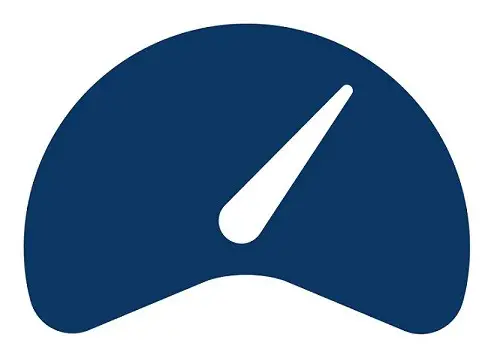
The app that gives you the tools, inspiration, and advice you need to become a better investor.
Other Personal Capital alternatives you should know is Betterment.
Most significantly, proper money management is Betterment’s name of the game.
What’s in it for you at Betterment? They also offer checking accounts with zero monthly fees, zero withdrawal fees, and even zero maintenance fees.
Betterment is best for hands-off investors and those looking for retirement in mind. Aside from that, it is also for users with low balances, and those who want a goal-based tool.
Moreover, Betterment has automatic rebalancing features allowing you to craft a well-diversified portfolio that will ultimately lead you to your goals.
PROS:
- Robo-advisor investment app
- Has portfolio options and customizations
- Fractional shares- all your cash are invested
- No account minimum and maintenance fees
CONS:
- Limited investments- stocks and bonds only
2. Wealthfront

Make Wealth Your Own.
Another strong contender on the investing category list is Wealthfront.
Essentially, Wealthfront consolidates all your financial data and needs in one place.
Furthermore, it offers various financial services such as opening a line of credit, opening a cash account with a debit card, and setting up an investing account with a customized portfolio of index funds.
Aside from that, Wealthfront is ideal for passive investors, young professionals, goal-setter, and even beginner investors. Investment management is automated and is fine-tuned to users’ needs and risks.
PROS:
- Automatic investing
- Personalized portfolio
- Fee-free cash accounts
CONS:
- No fractional shares- Wealthfront doesn’t buy partial or fractional shares of ETFs.
3. The Banktivity
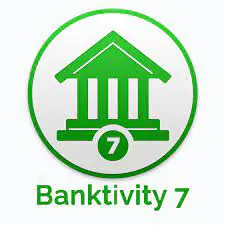
Banktivity is Better for Proactive Money Management.
Good news for Mac users! Banktivity (known initially as iBank) is the personal finance software designed explicitly for you.
It has a bunch of tools and features that you can use to track nearly every aspect of your financial life, including multiple budgeting strategies (envelope budgeting, event-based, category-based), tax support, and extensive reporting.
So if you’re a Mac user who wants a tool that matches the interface you’re used to, Banktivity is the one.
Start with a free 30-day trial here.
PROS:
- Excellent for Mac users
- Available internationally
- It offers a 90-day money-back guarantee – so if you’re not satisfied with using the app, you have plenty of time to decide.
- Seamless account connection
CONS:
- Only for Mac users- macOS, iOS, and watchOS
- Limited customer service
- A bit pricey with different tier subscription costs for features that are free to other competitor apps
Read more: Clarity Money Review 2020: Best Budgeting App For Beginners.
For Keeping On-Track
Next is for our control freak financial savvy planners. Kidding!
If you want to keep in charge of every ins and outs of your finances, many tools, fit your needs.
Ready to meet them?
1. Tiller Money
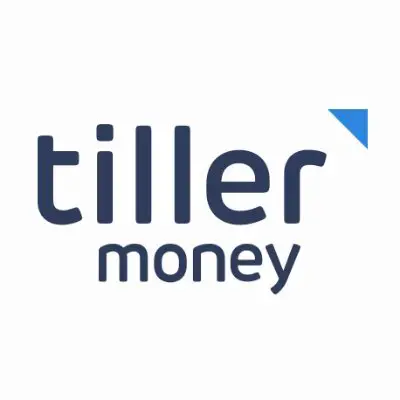
Your financial life is in a spreadsheet, automatically updated each day.
Are you a spreadsheet junkie? Here’s one of the Personal Capital alternatives, explicitly catering to religious spreadsheet users.
Tiller is a spreadsheet-based budgeting tool that syncs and automates your google or excel sheet all in one place.
Moreover, Tiller is a planning tool that syncs your daily transactions with customizable sheets, so you get a clear view of how your budget looks like.
Also, it offers pre-formatted templates if you’re new to spreadsheets.
On the other hand, if you want flexibility in your financial records, Tiller has the option for you to build your spreadsheet and tweak it from there.
Furthermore, Tiller offers a free 30-day trial period. Afterward, they will bill you $79 yearly or less than $7 a month.
PROS:
- Spreadsheet on the go
- Custom budget spreadsheet
- Automatic updates
- Tons of free templates
CONS:
- No mobile app
- High subscription fee
- Skill level for persons not keen on spreadsheets
Read the full review: Tiller Money Review- How to use the Automated Budgeting Spreadsheet
2. Truebill

Stay on top of your spending.
We tend to forget those subscriptions we signed up for and the memberships we participated in most of the time.
To get a hold of it, you need an app to help you halt those unused and wasted money subscriptions.
Hence, Truebill does more than help you catch unwanted or forgotten subscriptions. It also enables you to save more, budget better, and negotiate your bills.
More importantly, Truebill was created to help you save money by finding and canceling unwanted subscriptions for you.
But beyond that, it’s also a money management app that allows you to create and monitor a budget and automatically save towards your savings goals.
PROS:
- It saves you money on negotiated bills
- Monitors subscriptions
- Available on mobile and desktop
CONS:
- Free to use, but the premium subscription can be costly
- High commission (40% of negotiated savings)
Read the full review: Truebill App Saved Me From a Forgotten $300/year Subscription.
For Saving Goals
Finally, we’ve come to the bottom of our list. This is for our savers out there. Here are apps that you can use to help you manage your savings, thus saving more money.
1. Qapital
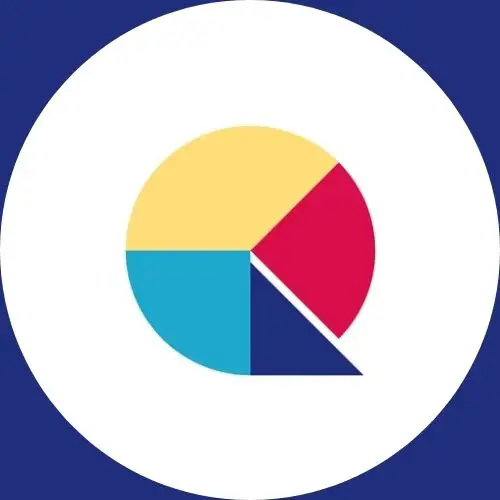
Feel Happy About Money.
Need help saving, budgeting, and investing? Qapital takes off the work from you and helps you do all these and more.
Essentially, Qapital is a mobile money app that helps you save money based on the rules you set, your spending habits and automatically saves or invests cash towards your savings goals or expenses you plan for.
It’s an app that takes the stress of micromanaging your money off you by allowing you to set rules once and doing the rest for you.
Furthermore, Qapital offers a wide variety of features from setting tons of additional saving or budgeting rules, Qapital invest, and joint savings for couples, and so much more.
Want to try it out? Start your free-30 day trial today.
PROS:
- It makes it easy to develop a saving habit for money-saving newbies
- Allows you to set multiple saving goals at the same time
- Provides the opportunity to save often and regularly by tying saving triggers to routine activities
- It makes budgeting stress free for laid back budgeters
- No Transfer fees and comes with a free Visa debit card
CONS:
- For mobile use only
- International transactions fees
- Customer service can only be reached through email or message in the app. No phone support
Full review: Qapital Review: How this Money App Helped Me Save $20000+ in 1 Year
2. Savology

The modern way to plan your money.
Looking for other Personal Capital alternatives?
Check out Savology. It is a website service that provides personalized financial plans to any individual’s unique situation.
Within minutes, users can build their plan, fully furnished with a list of action steps to take regarding saving, insurance, retirement planning, and more.
Unlike other apps or financial services that offer financial insights as an add-on apart from the product or service’s core, Savology’s primary line is in financial planning.
And not just through traditional human intervention with financial advisers to speak to.
Once you sign up, Savology will perform an analysis of your current financial situation plus plans. The analysis comprises budgeting, debt, insurance, retirement, estate planning, and more.
After completing the process, you’ll be given actionable plans. These action items help build a complete financial picture, allowing Savology to create a better financial plan.
Moreover, the more action items you complete, the higher quality and more accurate your generated financial plan.
PROS:
- Completely free to use
- Fast and free financial planning service
CONS:
- Web-based only, no mobile version
- No wealth management system
3. PocketSmith

Personal finance software for all walks of life.
PocketSmith is one of the Personal Capital alternatives out there that can bring your accounts and finances in one place. Moreover, it has a forecasting feature, allowing you to run what-if scenarios and anticipate future expenses.
Aside from that, PocketSmith has the multi-currency capability, budgeting, budget calendar, projected daily balances, and income and expense statements feature.
While it offers three different pricing packages, PocketSmith is still a good bargain out there.
PROS:
- Ad-free
- Imports data from other software or apps
CONS:
- No bill paying feature
- Limited mobile app capability
- Customer support solely via email
Related reads: Empower App Review: Take Control of Your Finances to Save More Money
Key Takeaways
Sometimes, when we get used to a particular tool or brand, we tend to stick with it for a long time, thus patronizing it.
However, change is inevitable, and it’s normal to shift gears.
Don’t take it wrong; we have nothing against Personal Capital. On the contrary, we love Personal Capital like most of you do.
But for those who find it not meant to be or instead not working for them anymore, you can freely check out those Personal Capital alternatives above and see it for yourself.
Most of those options are free, except for those paid versions, which I found counter-productive and can be costly in the long run.
Therefore, try their free trial and see how it works if you want to test it out. Typically, it’s money-back guaranteed plus commitment free, no holding period, and can cancel anytime you don’t see fit.
Overall, money management is one of the basics of personal finance. However, sometimes our partner in financial management will outgrow us. So, if you are looking for other personal finance, choose one that will last you for a lifetime.
One that is affordable or reasonably priced can ultimately function and respond to your ultimate needs.
Which platform are you most comfortable with? Share your thoughts with us! Which Personal Capital alternatives have you tried or willing to try?



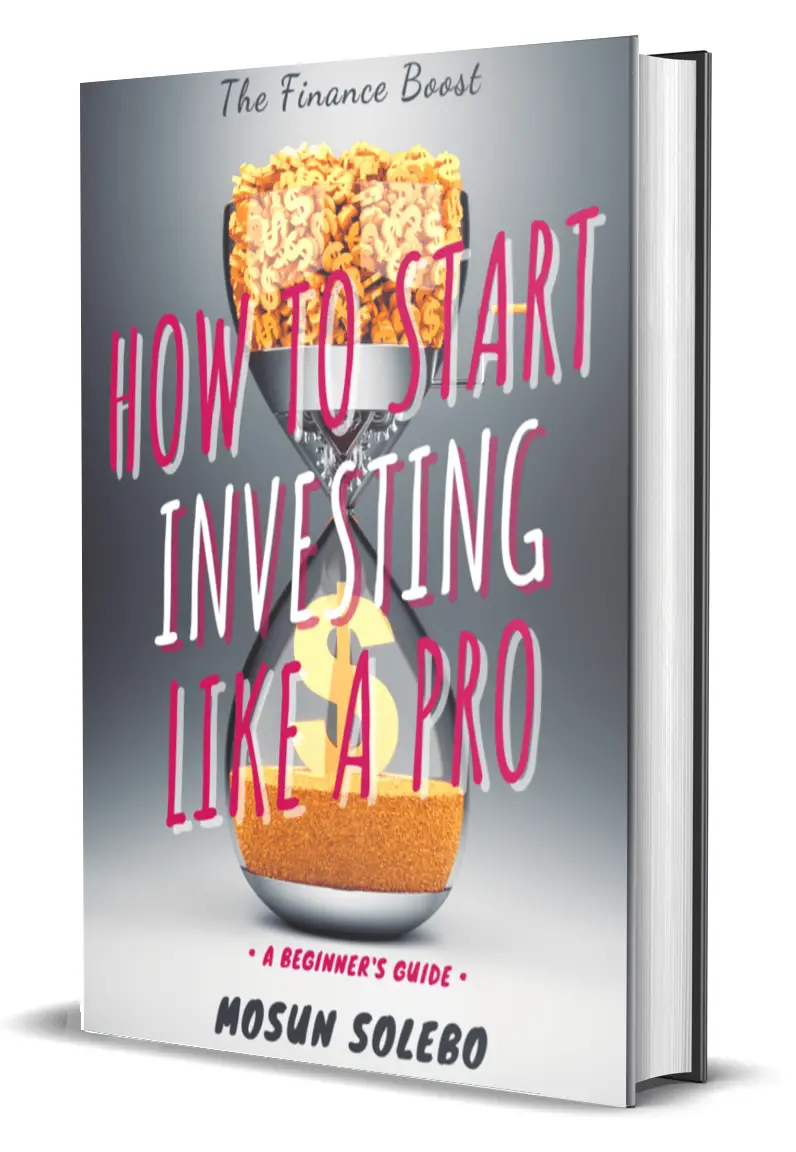








0 Comments